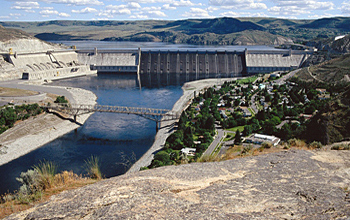|

Press Release 08-207
NSF Priority Area Awards $28 Million in New Grants and Ends Its Run

Human and social dynamics research improved knowledge about change in human systems
November 21, 2008
The National Science Foundation (NSF) recently awarded 37 new grants totaling $28.3 million to researchers engaged in interdisciplinary projects concerning human and social dynamics. These are the last awards that will be granted by NSF's Human and Social Dynamics (HSD) priority area, whose five-year run ends having awarded more than 400 research grants totaling about $166 million. "NSF's HSD program has been relentlessly interdisciplinary in funding transformative work on change in human systems," said David Lightfoot, NSF assistant director for social, behavioral, and economic sciences, which manages HSD. Since its inception in 2004, HSD research linked subject matter experts from different scientific and engineering disciplines--along with researchers from other communities, such as education, law, public policy and health communities, as appropriate--to study the dynamics of human action and development, as well as organizational, cultural, and societal adaptation and change. "In particular, the program has funded much innovative work on human factors in environmental change, both in causes and consequences, and in complex systems very broadly, where complexity arises from the interaction of simpler systems and is often manifested by dramatic phase transitions, many phenomena changing at the same time," said Lightfoot. "Although the HSD priority area officially ends with the 2008 competition, the research themes that emerged from HSD will continue to be encouraged at NSF," said Rita Teutonico, advisor for social, behavioral and economic sciences and HSD competition coordinator. "The theoretical frameworks developed through HSD projects will impact future studies of the dynamics of human systems, as will the strong interdisciplinary teams which formed." HSD's themes and framework revolved around a desire to better understanding the complexities of change and the dynamics of human and social behavior at all levels, including that of the human mind. The research focused on increasing knowledge about cognitive and social structures that create, define and result from change. Additionally, HSD research sought ways to manage profound or rapid change, and make decisions in the face of changing risks and uncertainty. HSD's final set of awards addresses a wide range of topics, including how the building of dams impacts individuals, communities and the environment; how peoples' most deeply held values can be exploited to give rise to political action, including terrorism; and how humans interact with various types of mechanical agents, including computers, with an eye toward making technology more accessible to a wider group of people. Each of these projects involves multidisciplinary research teams drawing upon a diverse array of methods and theories. The HSD priority area is supported by NSF's Directorates for Biological Sciences; Computer and Information Science and Engineering; Geosciences; Mathematical and Physical Sciences; and Engineering; and by NSF's Offices for Polar Programs and International Research and Engineering. Some of the topics to be studied by this year's grantees are: - The influence of formal schooling on reasoning and decision-making skills used in assessing everyday health risks (David Baker, Pennsylvania State University)
- The impact of spatial distance on tie formation, the effects of change in structure across space, and the support of local social processes within the large-scale social network (Carter Butts, University of California, Irvine)
- The fundamental cognitive mechanisms that drive coordination during interactive tasks (Richard Dale, University of Memphis)
- The ways in which individuals perceive risks and modify behaviors when given information about water safety, sanitation and health (Gonzalo De Guzman, Florida Atlantic University)
- The study of beliefs about agency, the conditions under which people apply different agent concepts, and how these beliefs change over time (Daniel Levin, Vanderbilt University)
- The impact of technological change on organizations, with specific attention to the impact of the introduction of electronic health records technology (Diane Strong, Worchester Polytechnic Institute)
- The relative costs and benefits of dam construction on communities and the environment in China (Desiree Tullos, Oregon State University)
- The use of dynamic transportation modeling to improve evacuation response in the face of natural disasters (Satish Ukkusuri, Rensselaer Polytechnic Institute)
- The conditions that lead an organization turns to terrorism to pursue its social and political agenda (Jonathan Wilkenfeld, University of Maryland at College Park)
-NSF-

Media Contacts
Bobbie Mixon, NSF (703) 292-8070 bmixon@nsf.gov
Program Contacts
Elizabeth Tran, NSF (703) 292-5338 etran@nsf.gov
Rita A. Teutonico, NSF (703) 292-7118 rteutoni@nsf.gov

The National Science Foundation (NSF) is an independent federal agency that
supports fundamental research and education across all fields of science and
engineering, with an annual budget of $6.06 billion. NSF funds reach all 50
states through grants to over 1,900 universities and institutions. Each year,
NSF receives about 45,000 competitive requests for funding, and makes over
11,500 new funding awards. NSF also awards over $400 million in
professional and service contracts yearly.
 Get News Updates by Email Get News Updates by Email
Useful NSF Web Sites:
NSF Home Page: http://www.nsf.gov
NSF News: http://www.nsf.gov/news/
For the News Media: http://www.nsf.gov/news/newsroom.jsp
Science and Engineering Statistics: http://www.nsf.gov/statistics/
Awards Searches: http://www.nsf.gov/awardsearch/
| 

